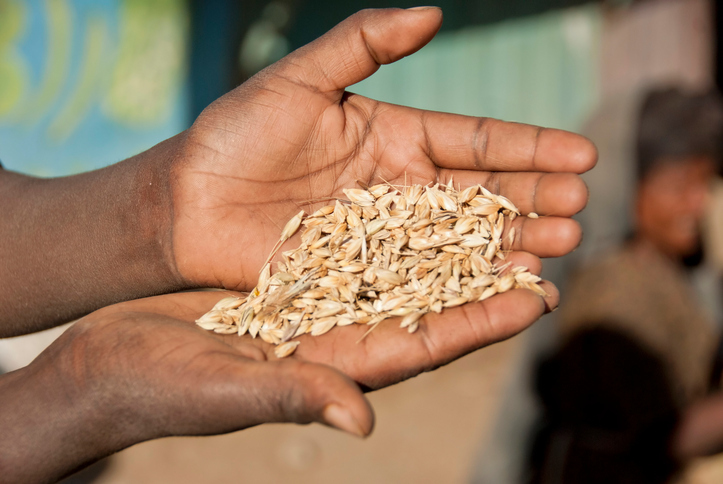Despite a serious drought hitting the country, India’s foodgrain production increased in 2015, and is expected to grow in 2016, with India’s Agriculture Ministry estimating the country will produce 252.23 million metric tons of foodgrains despite an ongoing drought impacting 11 Indian states.
As The Daily Caller notes, increased staple food production amidst a drought was unthinkable just a few decades ago when droughts contributed to mass starvation.
According to a 2015 report by the World Peace Foundation, India’s output in the face of drought reflects a growing reality around the globe: Famines are no longer the problem they used to be with massive famines affecting millions of people virtually disappearing.
The Daily Caller quotes Alex de Waal, executive director of the World Peace Foundation, from its 2015 report on world hunger: “Indeed it is all too easy to overlook historic, but unheralded achievements of the last 50 years: the elimination of calamitous famines (those that cause more than 1 million deaths) and the reduction almost to a vanishing point of great famines, or those that cause more than 100,000 deaths.”
Malthusian’s Wrong
In the 1960s and 1970s, many prominent academics subscribed to the Malthusian theory that unchecked population growth would inevitably outstrip food production. In his 1968 book “The Population Bomb,” Biologist Paul Ehrlich wrote, “The battle to feed all of humanity is over. In the 1970s and 1980s hundreds of millions of people will starve to death in spite of any crash programs embarked upon now.”
In 1969, Ehrlich co-authored a piece with current Director of the White House Office of Science and Technology Policy, John Holdren, where they wrote “man’s present technology is inadequate to the task of maintaining the world’s burgeoning billions, even under the most optimistic assumptions. No effort to expand the carrying capacity of the Earth can keep pace with unbridled population growth.”
They as well as many other Malthusians were wrong because they were unable to understand just the degree to which human ingenuity could improve agricultural technology and thus crop yeilds. The development of high yield crops through both conventional means, and more recently through the use of genetic engineering, combined with increased access to modern farm equipment, agricultural chemicals, and more recently GPS and GIS mapping, brought about a green revolution.
As a result, famines have become less of a problem even as population has continued to grow, and even in times of drought.
“The trends are striking. During the 20th century, the death toll from great famines zigzagged, ranging from a 10-year high of 27 million in 1900–1909; to more than 15 million in each of the 1920s, 1940s, 1950s, and 1960s; to a low of 1.4 million during the 1990s,” de Waal wrote.
“In the 21st century thus far, the death toll is near 600,000,” wrote de Waal.
Famine from Politics Not Weather
Even during the 20th century, when scientist like Holdren and Ehrlich saw limited technology and population growth as the source of mass starvation, the true culprit in the majority of instances of famine was the manipulation or disruption of the food distribution system for political reasons. As The Daily Caller notes, Communist regimes of the 20th century were responsible for inducing famines killing tens of millions of people. As communist regimes, opened their markets, or at least allowed agricultural imports, there have been no major famines for half a century.
Where famines occur now, they are linked to armed conflicts not due to weather. While modern agricultural techniques and genetically modified crops allow farmers to grow more food than ever before, unstable governments, bad policies and wars can still lead to hunger and starvation in some parts of the world says de Waal.
“The end of many Communist regimes, the adoption of international human rights norms, and the rise of globalization are among key factors that may help us eliminate famine forever,” de Waal writes. “Today’s famines are complex humanitarian emergencies caused mostly by armed conflict.”
H. Sterling Burnett, Ph.D., ([email protected]) is the managing editor of Environment & Climate News.





